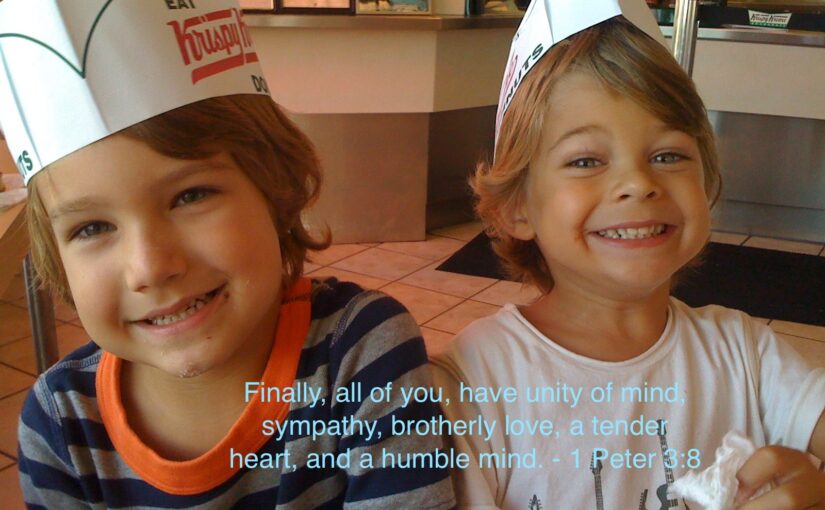
Today’s Reading: Ezekiel 1-3; John 1
““But then when the time is ripe, I’ll free your tongue and you’ll say, ‘This is what God, the Master, says:. . .’ From then on it’s up to them. They can listen or not listen, whichever they like. They are a bunch of rebels!””
Ezekiel 3:27 MSG
There are several different methods of listening, but two that are very important are active listening and passive listening. When you’re actively listening, you are processing the words, the context, and the tone of the message. You are engaging in the full context of the message and you are understanding the information to make an informed decision.
Passive listening is when you are just in the presence of the message and you hear the information, but you are not processing it. If you were asked to give information about the message at a later time you would not be able to relay the information.
In the two passages that we have today, Ezekiel and John, we have two messengers that are given their assignments and they are tasked to relay the information. In Ezekiel, Ezekiel is afraid of the persecution of the individual that he is tasked to deliver this message. He is in the midst of the exiles in Babylon. From my previous writing, we find that the individuals in Babylon were protected by God if they abided by his rules and listened to Jeremiah.
And whether they hear or refuse to hear (for they are a rebellious house) they will know that a prophet has been among them. 6 And you, son of man, be not afraid of them, nor be afraid of their words, though briers and thorns are with you and you sit on scorpions.[j] Be not afraid of their words, nor be dismayed at their looks, for they are a rebellious house. 7 And you shall speak my words to them, whether they hear or refuse to hear, for they are a rebellious house.
Ezekiel 2: 5-7
In contrast in John, John the Baptist delivers his message with boldness and confidence that Christ is coming and will be the Savior of everyone.
15 (John bore witness about him, and cried out, “This was he of whom I said, ‘He who comes after me ranks before me, because he was before me.’”) 16 For from his fullness we have all received, grace upon grace.[e]
19 And this is the testimony of John, when the Jews sent priests and Levites from Jerusalem to ask him, “Who are you?” 20 He confessed, and did not deny, but confessed, “I am not the Christ.” 21 And they asked him, “What then? Are you Elijah?” He said, “I am not.” “Are you the Prophet?” And he answered, “No.” 22 So they said to him, “Who are you? We need to give an answer to those who sent us. What do you say about yourself?” 23 He said, “I am the voice of one crying out in the wilderness, ‘Make straight[h] the way of the Lord,’ as the prophet Isaiah said.”
24 (Now they had been sent from the Pharisees.) 25 They asked him, “Then why are you baptizing, if you are neither the Christ, nor Elijah, nor the Prophet?” 26 John answered them, “I baptize with water, but among you stands one you do not know, 27 even he who comes after me, the strap of whose sandal I am not worthy to untie.” 28 These things took place in Bethany across the Jordan, where John was baptizing.
Behold, the Lamb of God
29 The next day he saw Jesus coming toward him, and said, “Behold, the Lamb of God, who takes away the sin of the world! 30 This is he of whom I said, ‘After me comes a man who ranks before me, because he was before me.’ 31 I myself did not know him, but for this purpose I came baptizing with water, that he might be revealed to Israel.” 32 And John bore witness: “I saw the Spirit descend from heaven like a dove, and it remained on him. 33 I myself did not know him, but he who sent me to baptize with water said to me, ‘He on whom you see the Spirit descend and remain, this is he who baptizes with the Holy Spirit.’ 34 And I have seen and have borne witness that this is the Son[i] of God.” John 1 : 15-34
The main focus of the message is not the messenger, but on the audience who receives the message. In Ezekiel, God tells Ezekiel that God will protect Ezekiel if he delivers a message. It is up to the people who listen or not listen to except the direction in the guidance. John the Baptist, tells everyone the good news of Christ. John the Baptist is overjoyed that he continuously tells the world the good news several times in the first Chapter of John.
In the Bible the messengers were limited in their audience. We currently have the benefit of having the Holy Spirit as our messenger. We all are the audience. We all have the ability to hear and listen to the message. This is the Spirit of God or God the Spirit. We have unlimited access to our messenger. He dwells in us and connects us with God the Father and God the Son. We are in continual communication with our messenger of today.
Many times in the Bible they were listening for information about the coming of Christ or the deliverance of the people. But now we can listen for guidance, listen for encouragement, listen for healing, and listen for anything that we need from God.
Let’s be in tune to what God is giving us and ask him that we may be better at active listening. Such as the example of Elijah.
“And he said, “Go out and stand on the mount before the Lord.” And behold, the Lord passed by, and a great and strong wind tore the mountains and broke in pieces the rocks before the Lord, but the Lord was not in the wind. And after the wind an earthquake, but the Lord was not in the earthquake. And after the earthquake a fire, but the Lord was not in the fire. And after the fire the sound of a low whisper. And when Elijah heard it, he wrapped his face in his cloak and went out and stood at the entrance of the cave. And behold, there came a voice to him and said, “What are you doing here, Elijah?””
1 Kings 19:11-13 ESV
Let’s listen for the whisper of God.





